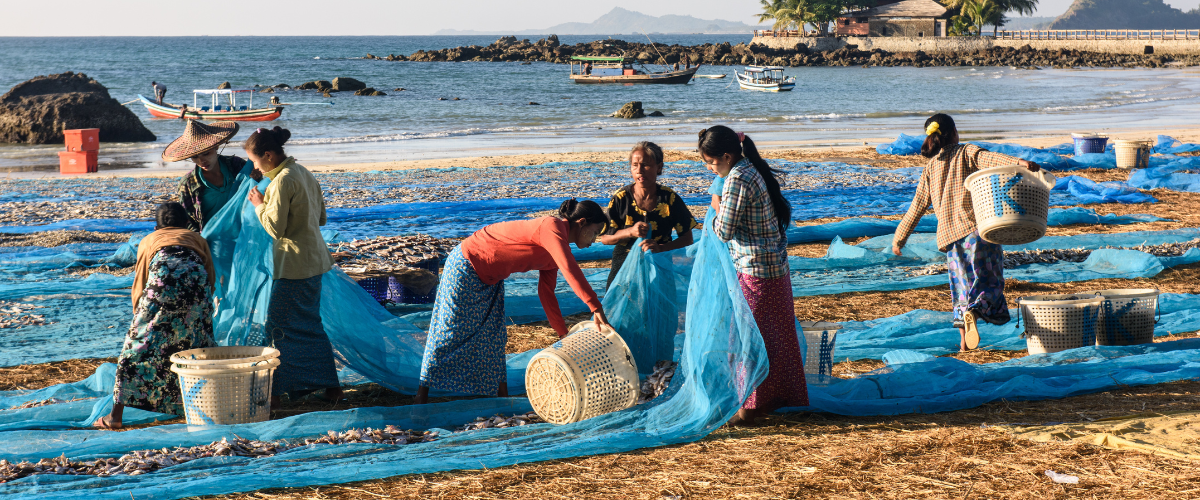This excerpt is from an article in Business Fights Poverty by Professor Christina Hicks. Christina Hicks is a Professor at the Lancaster Environment Centre and a member of the Blue Food Assessment scientific leadership team. She is the lead author of the Blue Food Assessment paper ‘Rights and representation support justice across aquatic food systems’ (Hicks et al. 2021). Read the full piece here.
The global fish and seafood sector – the world’s fastest growing food-producing industry – is at a crisis point. The narrow pursuit of profit has led not only to unsustainable growth but to the exclusion of entire communities, undermining social justice, mobility and progress.
Three countries – China, Norway and Peru – account for almost a quarter of global exports by value, according to new research, with 93 other countries sharing just 0.5 per cent of the market. And even within these countries, social, economic and political barriers limit the participation of frequently marginalized populations, including women.
Yet it is not too late to unlock and harness the broad benefits of aquatic – or blue – foods. Blue food systems have enormous potential to positively impact social justice through greater food sovereignty and self-determination, all of which is made even more important by the ongoing global food and inflation crises.
By removing the barriers that have defined the sector to date, the benefits of blue foods can be more fairly divided around the world, in turn improving global nutrition, livelihoods and equity.
Read the full Business Fights Poverty piece >
Read more about the Blue Food Assessment paper on justice across aquatic food systems >
